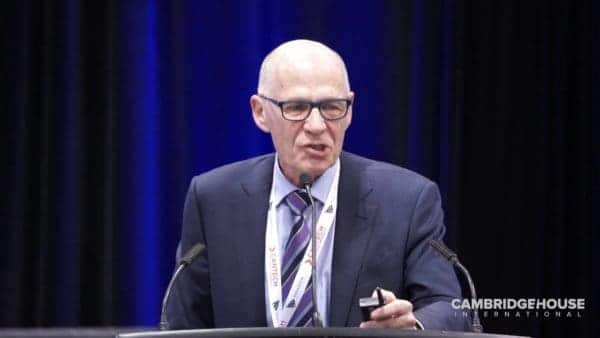Could Roche’s Alzheimer’s drug failure be Promis Neurosciences gain?

 News that Swiss multinational Roche Holding AG is shutting down two late-stage studies of its Alzheimer drug has been greeted as the latest in a series of disappointments concerning the search for an effective treatment for the devastating disease, but Elliot Goldstein CEO of Promis Neurosciences says not only was Roche’s failure a foregone conclusion but that it shows why Promis’s own Alzheimer drug is on the right path.
News that Swiss multinational Roche Holding AG is shutting down two late-stage studies of its Alzheimer drug has been greeted as the latest in a series of disappointments concerning the search for an effective treatment for the devastating disease, but Elliot Goldstein CEO of Promis Neurosciences says not only was Roche’s failure a foregone conclusion but that it shows why Promis’s own Alzheimer drug is on the right path.
On Wednesday, Roche Holding and partner AC Immune SA announced that it was halting two Phase 3 trials of their crenezumab drug, finding that after an interim analysis it was proving to be ineffective.
AC Immune Chief Executive Officer Andrea Pfeifer said that the company was “extremely disappointed” with the results, saying that targeting beta amyloids to treat Alzheimer’s through a monotherapy approach like that of crenezumab was proving less likely to be effective.
“Monotherapy might only be applicable in very earlier populations. In later stage populations… we have to think about combination therapy,” said Pfeifer to Reuters. The news caused a drop in share price for peer company Biogen which ended the day almost two per cent lower, while Promis dropped a penny to $0.26 per share.
Cantech Letter spoke to Goldstein at the 2019 Cantech Investment Conference and asked about the overall impact Roche’s drug failure might have on the field.
“There are two different effects,” says Goldstein. “One is that there’s one more failed experiment, adding more to the morose feeling generally about targeting amyloid beta and that trying to treat Alzheimer’s is so difficult and it keeps failing and failing after millions of dollars spent.”
“On the other hand, if you read some of the press from our side, it shows that Promis’ approach is the right one,” he says. “The problem with [crenezumab] was that it’s not selective, it binds to all forms of amyloid beta. It doesn’t bind selectively and exclusively to the toxic form and so it loses most of its ammunition on the non-toxic forms. That’s why it failed.”
Promis’ lead drug candidate PMN310 is still more than a year away from any clinical trial results but there is hope that its more targeted approach will work where Roche and others before it have failed.
One believer is Eden Rahim of Next Edge Capital whose Bio-Tech Plus Fund includes Promis Neurosciences. Eden says that normally his fund only invests in companies in later-stage trials for their drug candidates but that Promis is a special case.
“What Promis has done and where they’ve really succeeded with extremely limited resources is they identified where the epitopes were on the toxic oligomers and followed that up by designing an antibody that would be highly specific to binding with those specific epitopes,” Rahim says. “Effectively, they’ve been able to do post-mortems on all of these failed drug trials and then work towards creating a highly selective antibody.”

